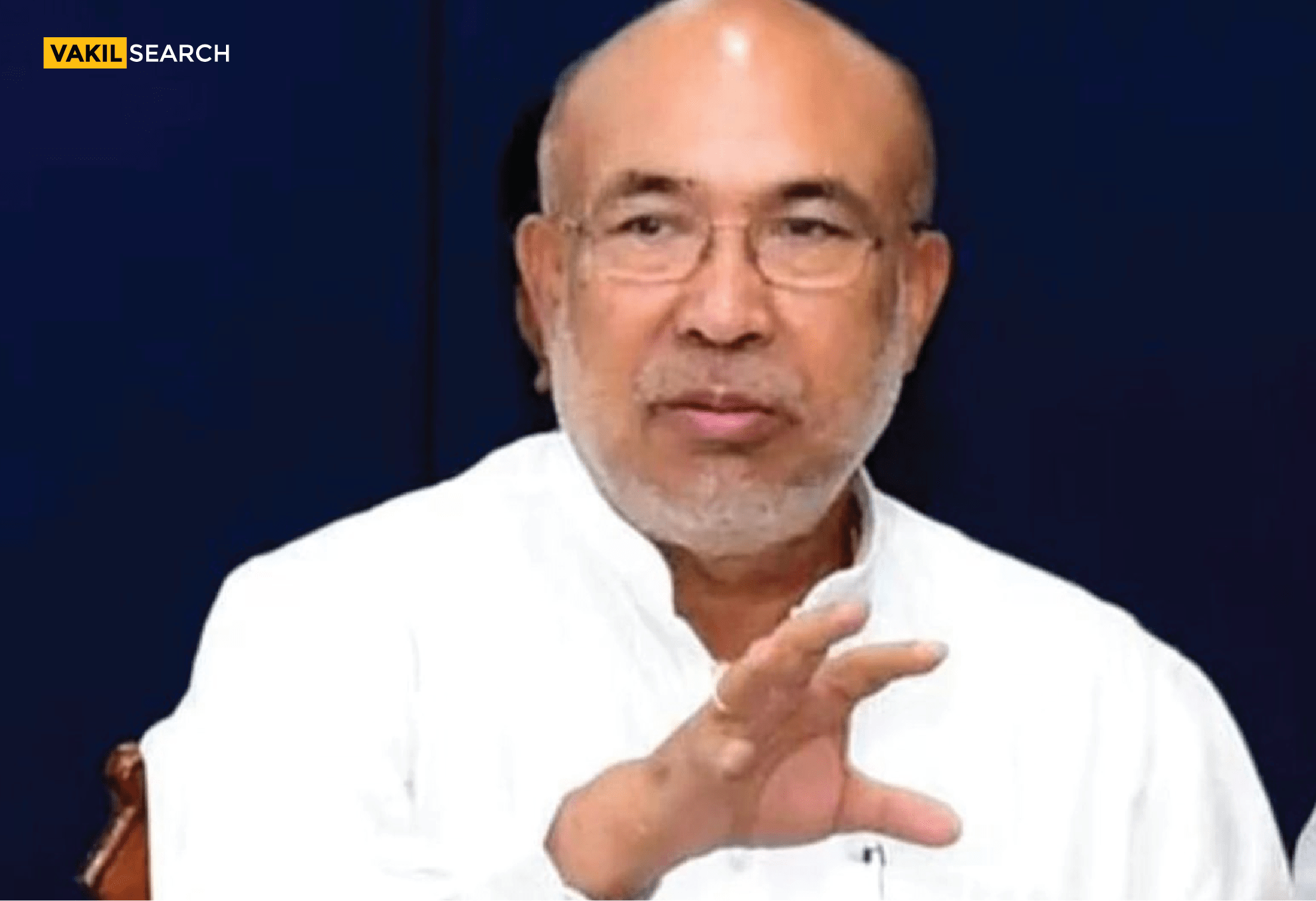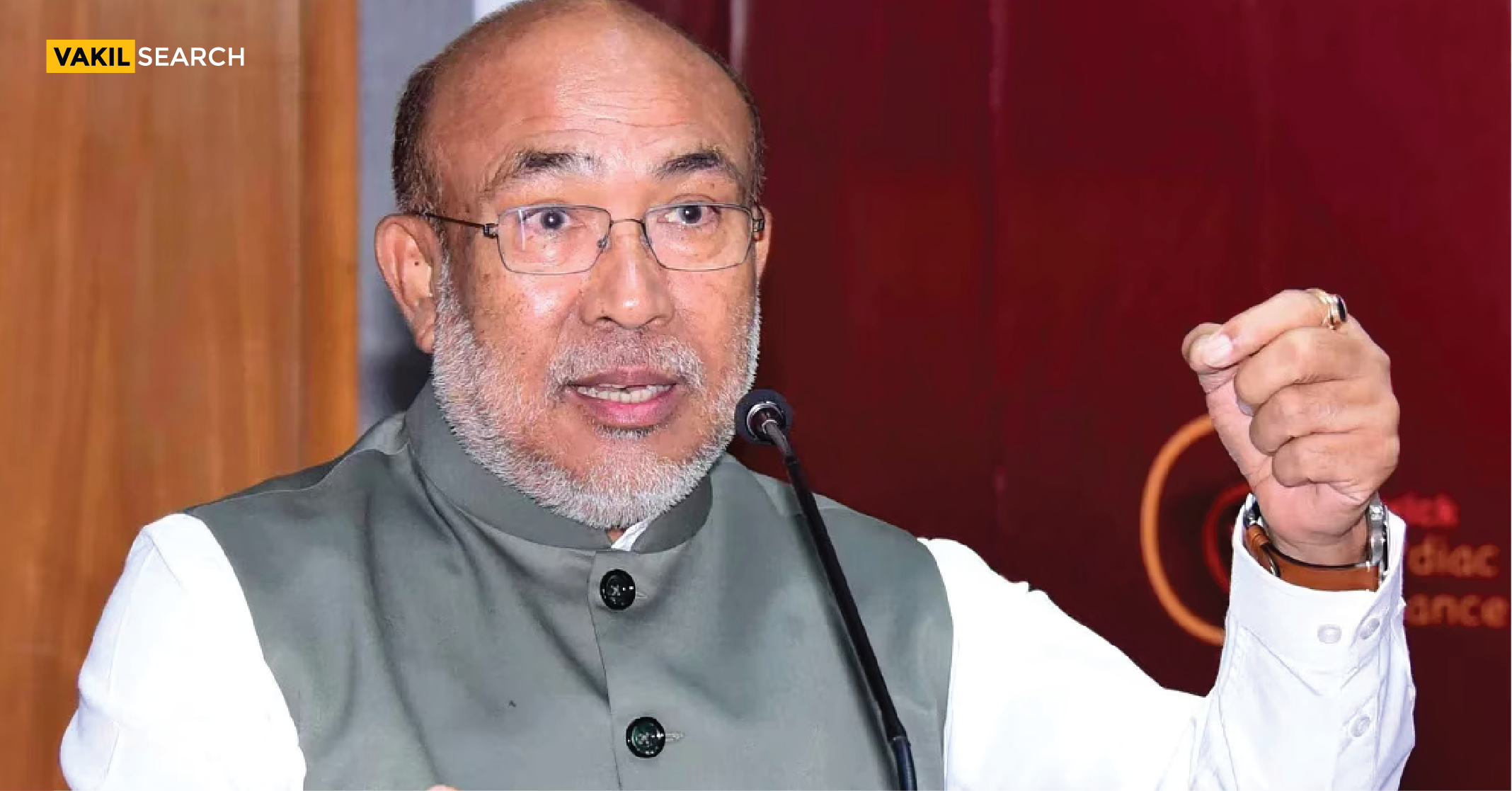N Biren Singh’s rise and fall as the Chief Minister of Manipur have been marked by a series of events that reflect the complexity of state politics and his leadership in times of crisis.
N Biren Singh’s Early Foray into Politics
Singh’s journey to the Chief Minister’s office began when he made a shift from sports to media, starting his own vernacular daily in 1991. His political career gained traction in 2000 when he was arrested for sedition following the publication of a speech that supported armed rebellion as a last resort.
This led him to join politics, where he became a prominent figure in the Democratic Revolutionary People’s Party before eventually joining the Indian National Congress. After a falling-out with the Congress in 2016, Singh switched to the Bharatiya Janata Party (BJP), and in the 2017 elections, he emerged as the Chief Minister of Manipur.

Campaign To Address Encounter Killings
Initially, Singh’s tenure as Chief Minister was marked by his campaign to rectify the wrongs of the previous Congress government, including tackling corruption, addressing the issue of ‘encounter killings,’ and bridging divides between the Meitei community and the hill tribes. He also positioned himself as a leader who would end the frequent bandhs (strikes) and blockades, providing a sense of stability to the state. However, despite these efforts, the seeds of discontent were planted early in his first term, which would later fuel the unrest that occurred in the years following.
Tiff With Brinda Thounaojam
One of the most notable blows to Singh’s leadership came in 2020, when accusations were made by a police officer, Brinda Thounaojam, alleging that Singh had pressured the Narcotics and Affairs of Border Bureau to drop charges against a Kuki-Zomi BJP leader involved in a drug seizure case. The growing tension between the Meitei community and the Kuki-Zomi, who are predominantly in the hills, also began to escalate during Singh’s tenure.
Violence in Manipur and Mr. N Biren Singh’s Attempt To Resign
These tensions, which stemmed from both historical grievances and the perceived favoritism towards certain ethnic groups, exploded into violent conflict in May 2023. The situation worsened as ethnic violence spread across Manipur, leading to significant loss of life and property.
In June 2023, with the conflict raging for nearly two months, Singh and a group of his ministers attempted to resign, signaling that they had lost the support of the people.
This attempt to step down came after violent protests erupted following the killing of two Meitei men, with people gathering at Imphal’s Khwairamband women’s market to protest against the government’s inability to control the violence. However, Singh was met by his supporters, who prevented the resignation from going through. His trusted minister, L Susindro Meitei, handed the resignation letter to the women in the crowd, only for them to tear it up, forcing Singh to announce that he would not step down. Despite this setback, Singh continued to hold onto power for the next 19 months, despite growing discontent from various quarters.
Criticism From the Kuki-Zomi Community
Over the next year and a half, Singh’s leadership came under further scrutiny. He faced criticism from the Kuki-Zomi community, his own ministers, and even his party allies. In particular, seven BJP MLAs, including two ministers, were vocal in blaming Singh for the ongoing conflict.
The National People’s Party, which was an ally in the state government, eventually withdrew its support, further isolating Singh. His handling of the Kuki-Zomi issue, combined with accusations of his involvement with armed groups like Arambai Tenggol, led to increasing pressure on his leadership. At the same time, his reputation within the party was tarnished, with several MLAs from the Valley seeking his removal, citing his inability to bring peace and stability to the state.
Singh’s tenure also saw growing tensions over the government’s policies, especially the crackdown on poppy plantations in the Kuki-Zomi hills and the alleged influx of Chin people from Myanmar, who share ethnic ties with the Kuki-Zomi. These policies alienated large sections of the Kuki-Zomi community, further escalating the conflict.

The BJP, which had once seen Singh as a rising star in the Northeast, began to reassess his leadership. Despite Singh offering to resign multiple times, the central BJP leadership continued to back him, primarily because of his association with the party’s image of a strong and decisive leadership. However, many in the BJP felt that his leadership had become an embarrassment, particularly after the violent conflict escalated, leaving Singh unable to maintain control over the state.
Now, in February 2025, Singh tendered his resignation as Chief Minister, ahead of the Budget session of the Manipur Assembly, bringing his tumultuous tenure to an end. While he had managed to cling to power for nearly two years after his initial attempt to step down in June 2023, the internal divisions within his party and the escalating violence ultimately led to his downfall.
Conclusion
Despite his previous efforts to portray himself as a strong leader, the ongoing unrest and his inability to resolve the ethnic conflict left Singh vulnerable. His resignation came just days before the state’s Budget session, signaling the culmination of a political career marked by both ambition and crisis. The BJP, though, remained cautious about his departure, acknowledging that Singh’s position as Chief Minister had become untenable, but also pointing out that such changes would be made at a time that suited the party’s interests and not at the behest of opposition forces or rivals within the party. For more legal support connect with our experts at Vakilsearch.

